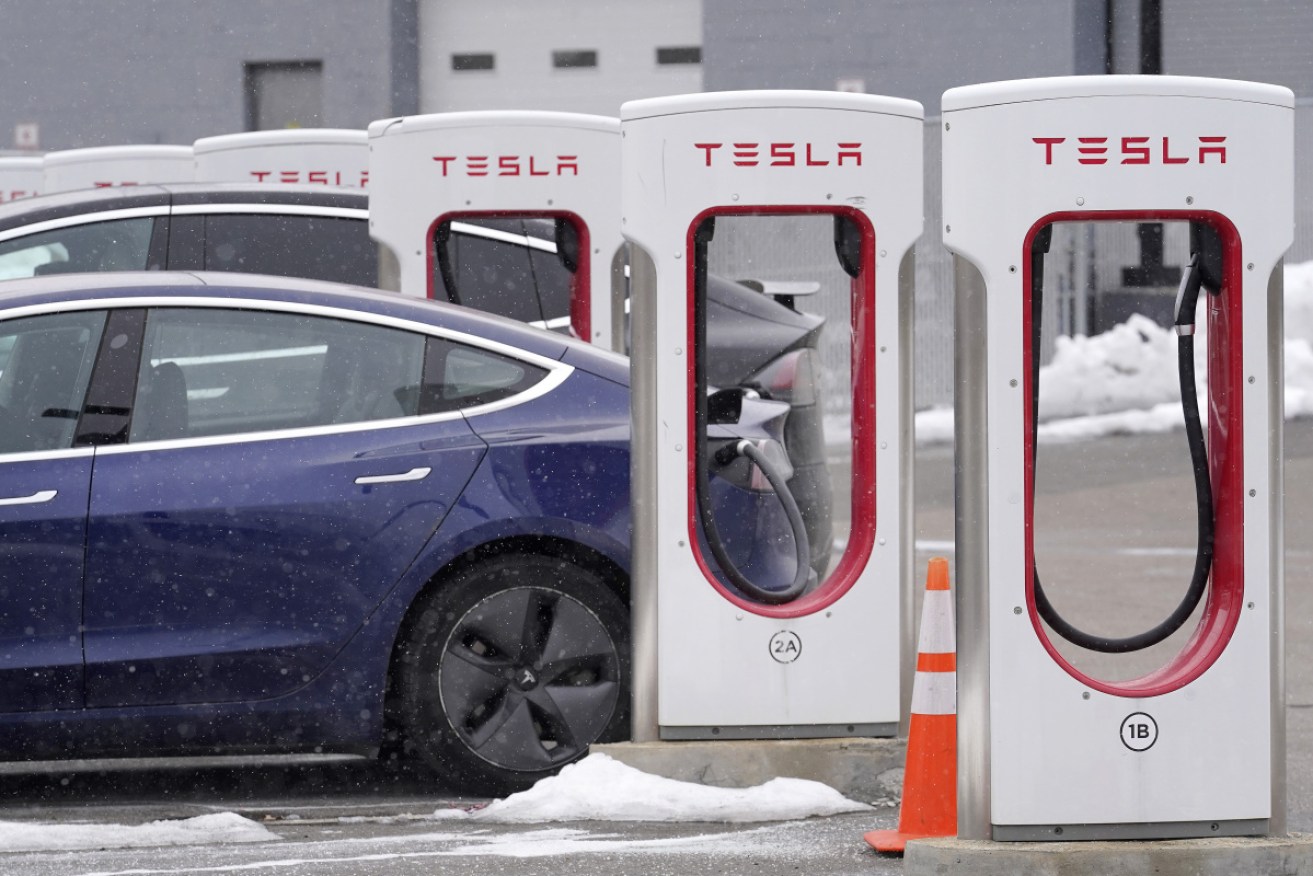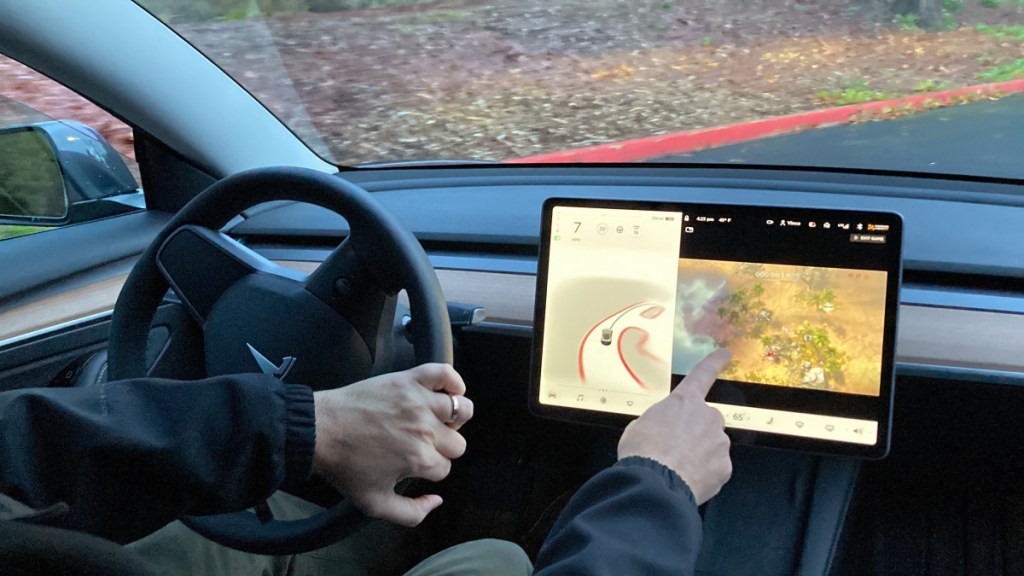US agency chases Tesla over its EV range claims


Tesla is being probed by the Department of Justice over the advertised range of its vehicles. Photo: AAP
Tesla has been accused of exaggerating how far owners can drive before they need to recharge their car batteries, resulting in a probe by the United States’ top law enforcement department.
The Department of Justice (DOJ) issued “requests for information, including subpoenas from the DOJ, regarding certain matters associated with personal benefits, related parties, vehicle range and personnel decisions,” according to documents Tesla filed with the American market manipulation watchdog.
Chris Jones, president of the Australian Electric Vehicle Association, said it is important that Tesla is clear with customers about the circumstances in which electric vehicle owners can achieve the advertised range.
“The bigger the range, the bigger the selling point: This thing will drive 500 kilometres on a charge under ideal circumstances, which is minimal air-conditioning, no headwind, no uphill, no downhill, just flat ground on a 25-degree ambient day,” he said.
“Anything different from that you’re going to have less range.”
Reuters reported that Tesla has had so many complaints about the range of its vehicles from customers that it quietly created a ‘diversion team’ to cancel range-related appointments and “thwart any customer complaining about poor driving range from bringing their vehicles into service”.
Tesla said should the DOJ pursue action against the car manufacturer it could have “the possibility of a material adverse impact on our business,” in its filings.
According to Reuters, Tesla began exaggerating its vehicles’ potential driving distance by rigging its range-estimating software.
When the vehicle is fully charged, the range meter shows exaggerated projections for the distance it could travel, while when the battery falls below 50 per cent of its maximum charge, it shows more realistic projections.
Not the first time
The company is no stranger to accusations of exaggerating range, and earlier this year the company was fined by South Korea for failing to tell customers about shorter driving ranges in low temperatures.
The Korea Fair Trade Commission fined Tesla 2.85 billion won (more than $3.3 million) for exaggerating the “driving ranges of its cars on a single charge, their fuel cost-effectiveness compared to gasoline vehicles as well as the performance of its Superchargers” on its websites.
A 2020 study of 4200 electric vehicles in Canada found at 20 degrees Celsius most over-performed, but in sub-zero temperatures they averaged only 54 per cent of the advertised range.
Tesla owner Elon Musk also accused the US Environmental Protection Agency of making a mistake when it failed to back up his claim that the Model S Long Range was the first electric vehicle to have a range of 643 kilometres, or 400 miles, which was sharply rebuked by the agency.

Tesla has been accused of exaggerating the range of its electric vehicles by customers. Photo: AP
Jones said while Tesla has been good at predicting the range of its vehicles, the “shift towards lithium iron phosphate chemistry” could contribute to the issue.
“Their charge-remaining algorithms still need tweaking to make sure they capture that as reliably as they can,” he said.
“With the shift towards iron phosphate chemistry because it’s cheaper, easier and more accessible and certainly safer, the downside is that the range estimates are a bit harder to get accurate.”
Range anxiety
A research paper published in August found the average range for an electric vehicle was 12.5 per cent worse than advertised, based on road tests.
Jones said for most electric vehicle drivers, the biggest anxiety when it comes to the range is ensuring there is a usable charger along their route.
“People know that they can get anywhere between 300 to 500 kilometres per charge, but the real question is when you get to the charger, is it working?” he said.
“That is probably the bigger concern. It’s a common problem, unfortunately.”
Australian states and the federal government have invested heavily in electric vehicle infrastructure in recent years.
At the end of 2022, there were 2392 charging stations throughout the country.








